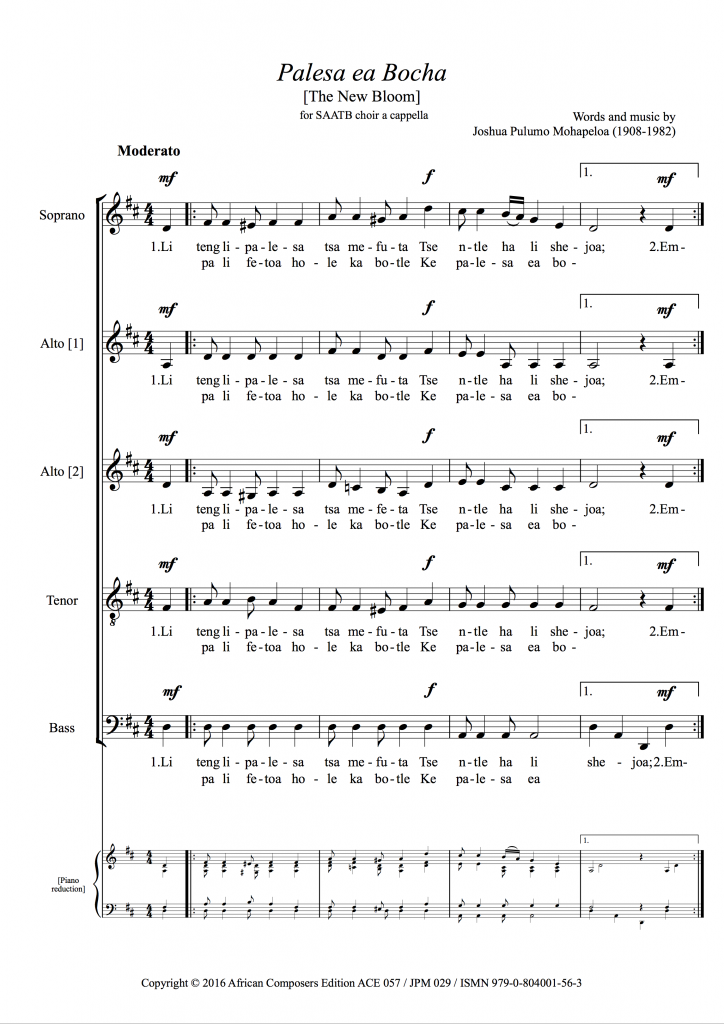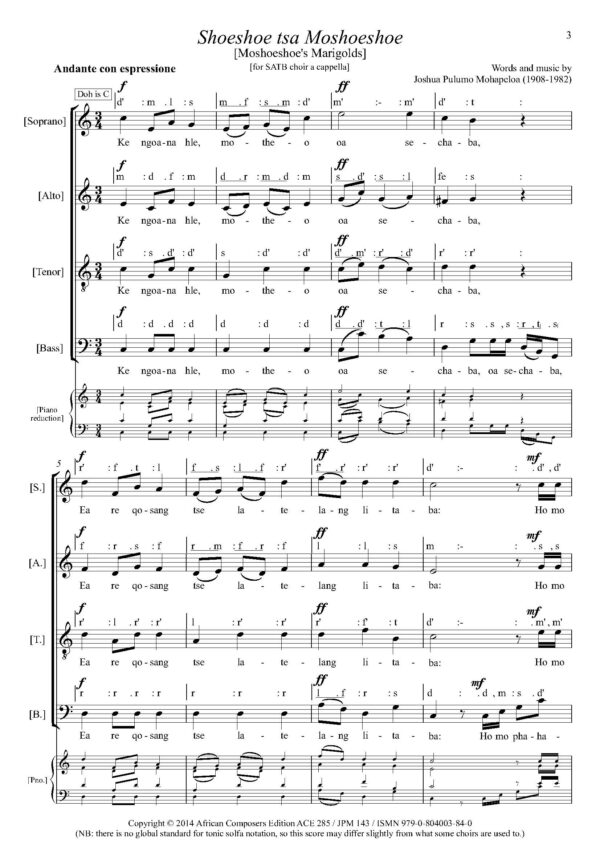Palesa Ea Bocha

R39.00
Mohapeloa composed ‘Palesa Ea Bocha’ in the early 1930s, publishing it in 1935 as song No. 29 in his first collection of 32 songs, Meloli le Lithallere tsa Afrika. As with many of Mohapeloa’s songs, it uses metaphors drawn from nature in order to talk about life in general. The title of this song literally means ‘new flower’ and at one level it is about the beauty of flowers and their renewal every year, and Mohapeloa refers specifically to lilies, no doubt the arum lilies that are ubiquitous in Lesotho in the Spring. At a deeper level the text refers to spiritual or moral renewal, especially the renewal of life and hope that is inspired by the coming of the next generation; the way youth keeps ‘flowering anew’. At the end of the translation, which the composer made in 1965, he wrote in parenthesis, “It is all about a new feeling in a person. To be revived for the rest of our life is something that will keep us happy all the time”.


